
Skúvoy Island: The Hidden Gem of the Faroe Islands
Skúvoy Island is a serene and picturesque island located in the Faroe Islands. It is a place where nature takes center stage, offering breathtaking landscapes and a peaceful atmosphere. The island is named after the great skua, a bird that can be seen nesting here in large numbers. Birdwatchers will find it to be a paradise, with many rare species making their home on the island. The island is steeped in history, with ancient ruins and stories of Viking settlers. Visitors can explore the remains of a medieval church and a historic cemetery. The island also boasts stunning cliffs and rolling hills, which provide excellent opportunities for hiking and photography. Skúvoy Island is not just about natural beauty and history. It is also home to a small, welcoming community. The local people are known for their hospitality and are always ready to share stories about their island. You can enjoy traditional Faroese cuisine and experience the island's unique culture during your visit.
Local tips in Skúvoy Island
- Bring sturdy hiking boots for exploring the island's rugged terrain.
- The best time to visit is during the summer months when the weather is mild and the birdlife is most active.
- Pack a good camera to capture the island’s stunning landscapes and wildlife.
- Check the local ferry schedule in advance as services can be limited.
- Respect the local wildlife and keep a safe distance from nesting birds.
Skúvoy Island: The Hidden Gem of the Faroe Islands
Skúvoy Island is a serene and picturesque island located in the Faroe Islands. It is a place where nature takes center stage, offering breathtaking landscapes and a peaceful atmosphere. The island is named after the great skua, a bird that can be seen nesting here in large numbers. Birdwatchers will find it to be a paradise, with many rare species making their home on the island. The island is steeped in history, with ancient ruins and stories of Viking settlers. Visitors can explore the remains of a medieval church and a historic cemetery. The island also boasts stunning cliffs and rolling hills, which provide excellent opportunities for hiking and photography. Skúvoy Island is not just about natural beauty and history. It is also home to a small, welcoming community. The local people are known for their hospitality and are always ready to share stories about their island. You can enjoy traditional Faroese cuisine and experience the island's unique culture during your visit.
When is the best time to go to Skúvoy Island?
Iconic landmarks you can’t miss
Kirkjubømúrurin
Discover the rich history and stunning landscapes of Kirkjubøur, one of the oldest villages in the Faroe Islands, where culture meets breathtaking nature.
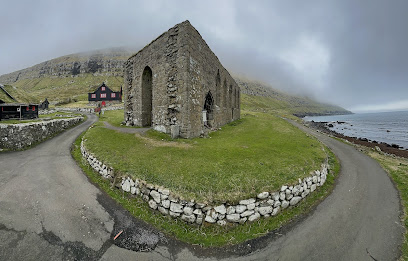
Múlafossur Waterfall
Discover the breathtaking beauty of Múlafossur Waterfall in the Faroe Islands, a must-see destination that showcases nature's grandeur.
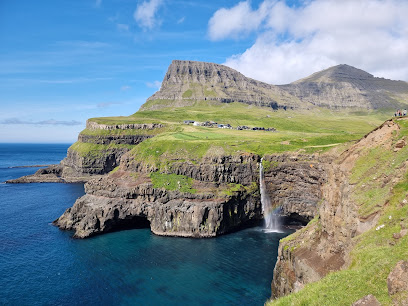
Gjógv Natural Harbour
Explore the breathtaking cliffs and serene beauty of Gjógv Natural Harbour in the Faroe Islands, a perfect haven for nature lovers and adventurers.
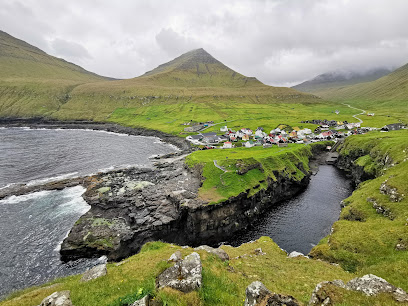
Fossá
Discover the breathtaking beauty of Fossá, the tallest waterfall in the Faroe Islands, nestled in the serene landscapes of Haldarsvík.
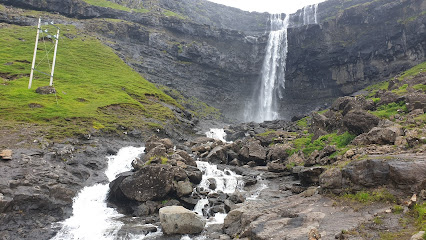
The Nordic House
Discover the rich cultural tapestry of the Faroe Islands at The Nordic House, a vibrant center for art, exhibitions, and community events.
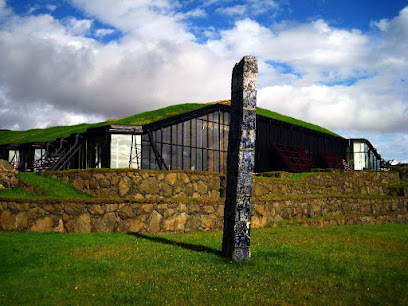
Skansin
Discover the historical significance and stunning views at Skansin, a prime landmark in Tórshavn, Faroe Islands.
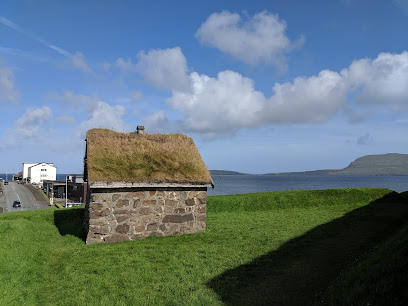
The Seal Woman (Kópakonan)
Discover the captivating legend of The Seal Woman in Mikladalur, Faroe Islands, where art, folklore, and breathtaking landscapes intertwine.
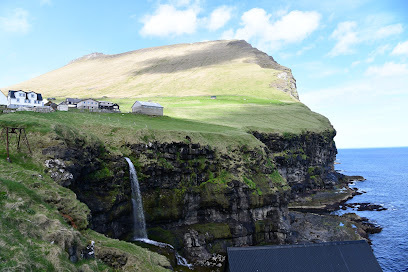
Trælanípa
Experience the breathtaking cliffs of Trælanípa in the Faroe Islands, where natural beauty meets thrilling adventure amidst stunning ocean views.
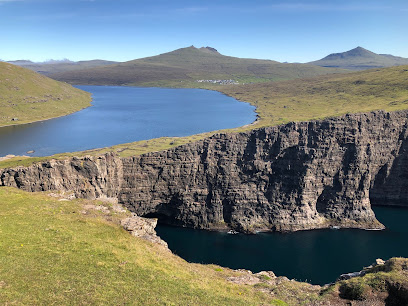
The National Gallery of The Faroe Islands
Explore the vibrant artistic landscape of the Faroe Islands at The National Gallery, a cultural treasure in Tórshavn showcasing local and contemporary art.
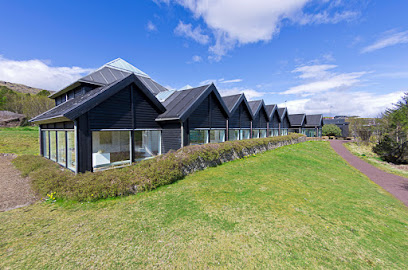
Tjóðsavnið (Faroe Islands National Museum)
Explore the Faroe Islands' history, culture, and natural beauty at Tjóðsavnið, the National Museum offering diverse exhibitions and stunning landscapes.
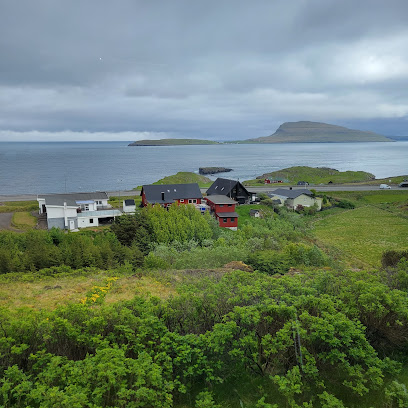
Kallur Lighthouse
Explore Kallur Lighthouse on Kalsoy Island, where dramatic cliffs meet the Atlantic, offering breathtaking views and unforgettable hiking experiences.
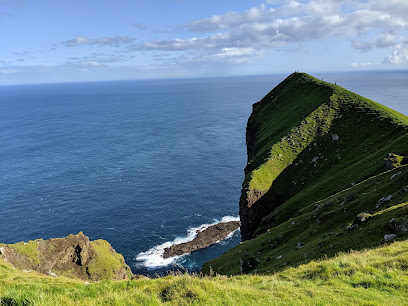
Hilton Garden Inn Faroe Islands
Experience the beauty of the Faroe Islands from the comfort of Hilton Garden Inn, your home away from home in Tórshavn.
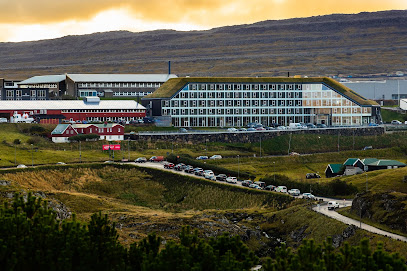
Slave Cliff (Lake Above the Ocean)
Experience the breathtaking views and natural beauty at Slave Cliff, a premier hiking area in the stunning Faroe Islands.
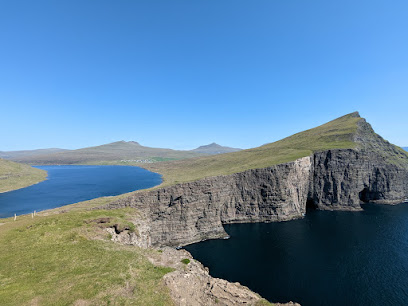
Bøsdalafossur Waterfall
Discover the stunning Bøsdalafossur Waterfall in the Faroe Islands, where nature's beauty converges with breathtaking landscapes and serene tranquility.
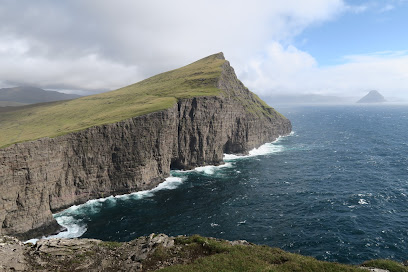
Giljanes Hostel & Campsite
Experience the breathtaking beauty of the Faroe Islands at Giljanes Hostel & Campsite, where comfort meets adventure in a stunning natural setting.

Unmissable attractions to see
Klovningur
Discover Klovningur, a stunning coastal landmark in the Faroe Islands, offering dramatic cliffs, lush landscapes, and panoramic ocean views.
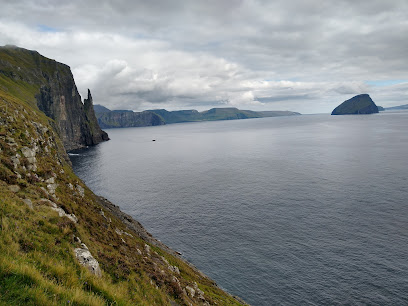
Roykstovan
Step back in time at Roykstovan, a historic Faroese farmhouse museum in Kirkjubøur, showcasing centuries of island culture and heritage.
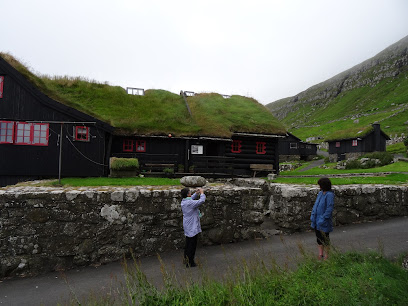
Graveyard Skúvoy
Visit the final resting place of Viking chieftain Sigmundur Brestisson on the tranquil island of Skúvoy, surrounded by stunning Faroese scenery.

Essential places to dine
Angus Steakhouse
Discover Angus Steakhouse in Tórshavn - where premium steaks meet breathtaking views in the heart of the Faroe Islands.
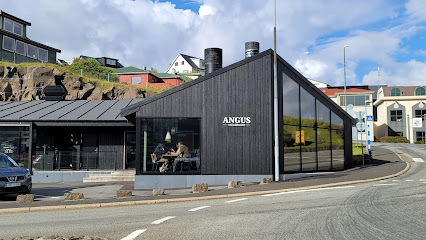
Áarstova
Discover Áarstova: where authentic Faroese cuisine meets cozy charm in the heart of Tórshavn.
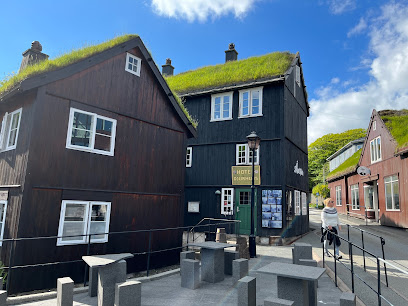
Barbara Fish House
Experience exquisite seafood at Barbara Fish House in Tórshavn—where fresh local catches meet Faroese culinary traditions.
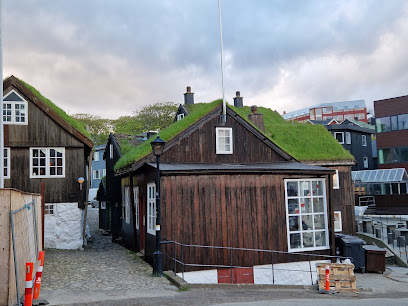
Koks Restaurant
Experience exceptional Faroese cuisine at Koks Restaurant, where local ingredients meet innovative culinary artistry in stunning surroundings.
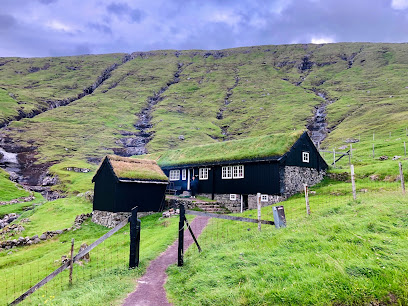
Rose's Restaurant & Catering
Discover the taste of the Faroe Islands at Rose's Restaurant & Catering – where local flavors meet exceptional service.
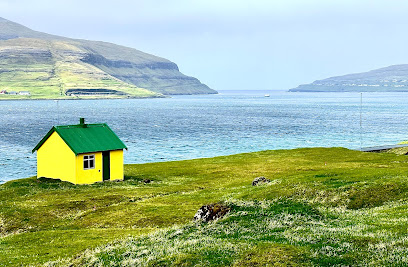
Café Zorva
Experience authentic Faroese flavors at Café Zorva in Sørvágur—your culinary haven in the heart of the Faroe Islands.
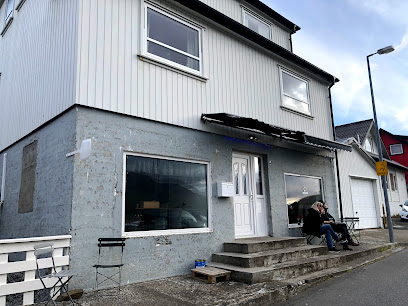
Fisk og Kips
Experience authentic Faroese flavors at Fisk og Kips - Tórshavn's beloved fish and chips restaurant offering fresh seafood at affordable prices.
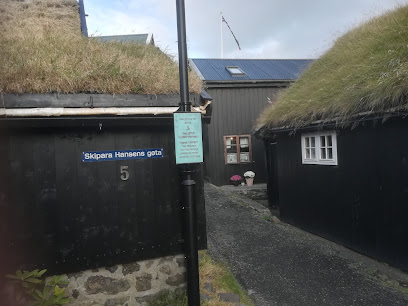
Kafe Umami
Discover Kafe Umami in Tórshavn: A must-visit restaurant serving fresh local fare with a unique twist amidst stunning Faroese landscapes.
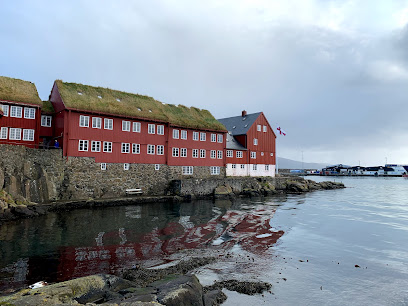
Suppugarðurin
Savor authentic Japanese ramen at Suppugarðurin in Tórshavn - where tradition meets innovation for an unforgettable dining experience.
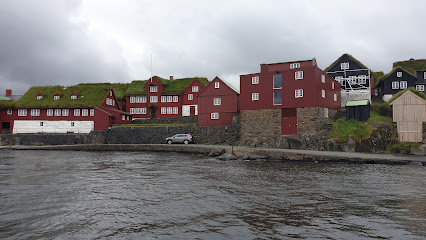
Seven
Discover authentic Chinese flavors at Seven in Tórshavn – where every dish tells a story of tradition and taste.
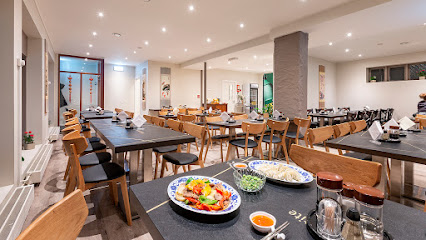
Smiðjan
Discover authentic Faroese cuisine at Smiðjan in Miðvágur – where local flavors meet breathtaking views.
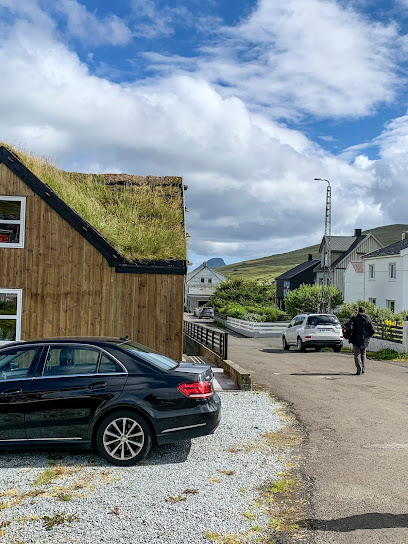
Resturant Cafe Pollastova
Discover authentic Faroese cuisine at Café Pollastova in Sørvágur, where tradition meets flavor amidst stunning island scenery.
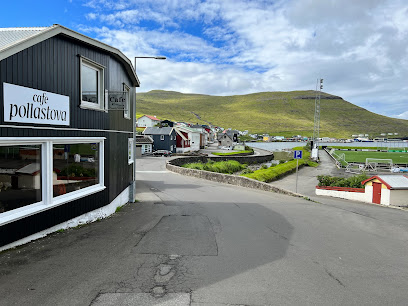
ROKS
Discover authentic Faroese cuisine at ROKS in Tórshavn - where local flavors meet warm hospitality for an unforgettable dining experience.
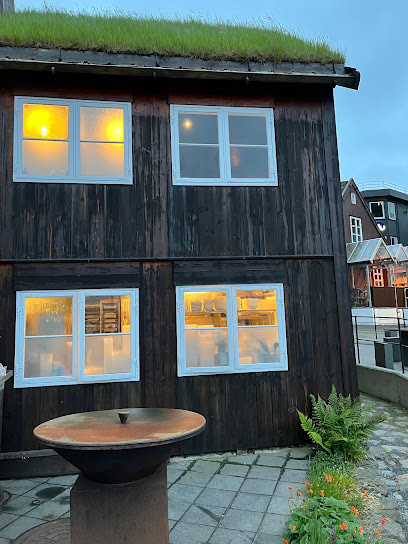
Skeiva pakkhús
Discover authentic Faroese cuisine at Skeiva Pakkhús in Tórshavn – where tradition meets taste in every delightful dish.
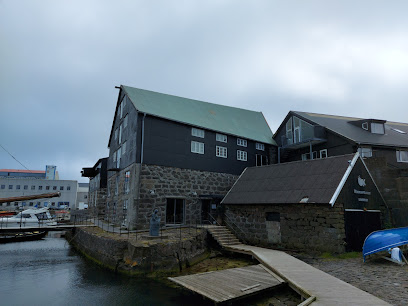
Caféin á Mølini
Discover authentic Faroese cuisine at Caféin á Mølini, where local flavors meet breathtaking views in Skálavík.
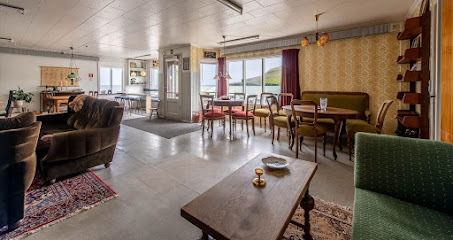
Markets, malls and hidden boutiques
Bónus
Discover the charm of Bónus in Sandavágur, your go-to grocery store for local and international delights in the Faroe Islands.
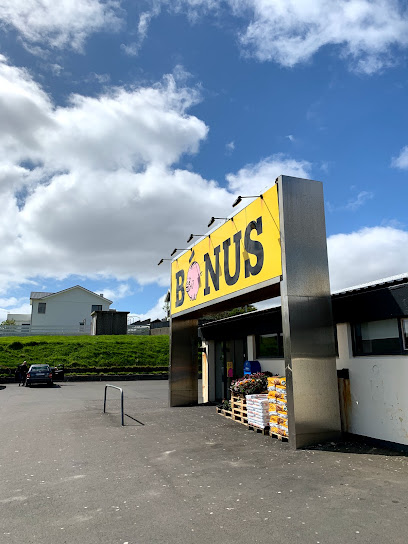
Á
Discover the flavors of the Faroe Islands at Á grocery store in Tórshavn—your destination for local and international delicacies.
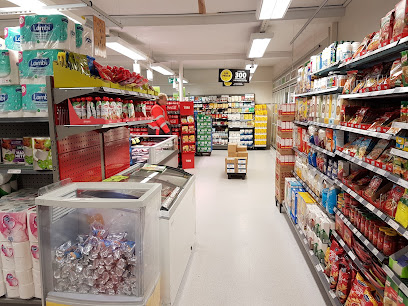
Búrhandilin
Experience local Faroese flavors and fresh ingredients at Búrhandilin, the charming grocery store in Skopun, Faroe Islands.
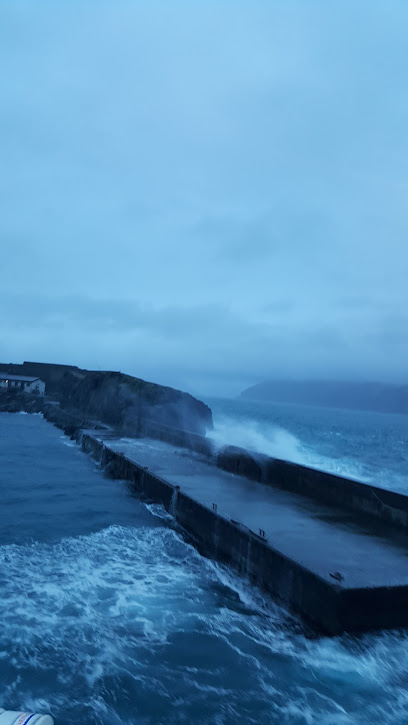
Á Sandoyggin
Á Sandoyggin: Your essential grocery stop in Skopun, offering local goods and fresh produce for your Faroe Islands adventure.
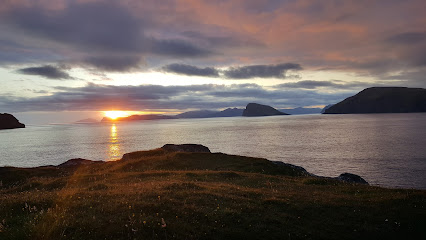
Sheep
Experience the best of local flavor at Sheep Supermarket in Tórshavn, where quality meets community spirit.
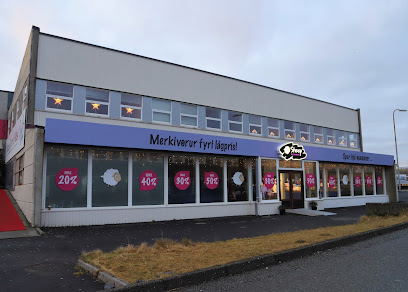
Ryggstein Sigarir
Discover the finest selection of premium cigars at Ryggstein Sigarir in Tórshavn, a unique spot for relaxation and indulgence in the Faroe Islands.

Ullvøruhúsið
Discover authentic Faroese wool fashion at Ullvøruhúsið, Tórshavn's premier clothing store, offering unique styles and local craftsmanship.
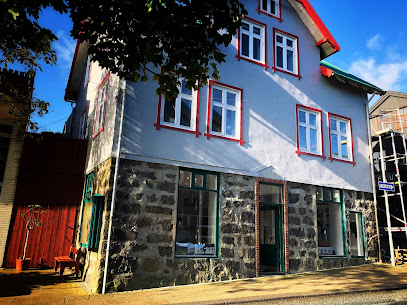
Føroya Heimavirkisfelag
Explore authentic Faroese fashion and textiles at Føroya Heimavirkisfelag in Tórshavn, where tradition meets craftsmanship.
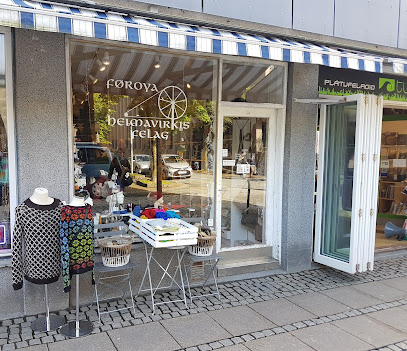
Fjord by Suffía Nón
Explore unique handcrafted gifts at Fjord by Suffía Nón, your destination for authentic souvenirs in the stunning Faroe Islands.
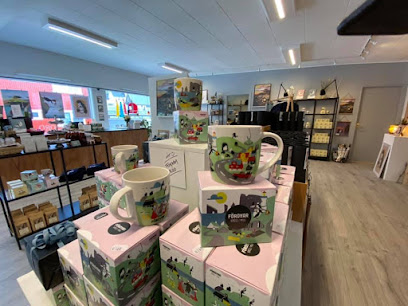
Kalasin Asia Shop (KAS)
Experience the essence of Asian cuisine at Kalasin Asia Shop, a premier grocery store in Tórshavn, Faroe Islands, filled with authentic flavors and ingredients.
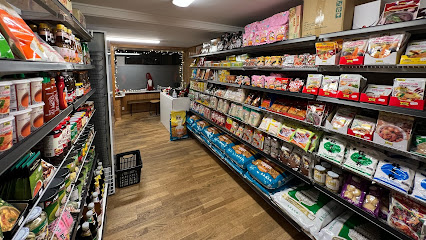
Eldhús
Discover local flavors and gourmet delights at Eldhús, the premier grocery store in Sandur, Faroe Islands.

Rit & Rák
Explore the heart of Tórshavn at Rit & Rák, a bookstore celebrating Faroese literature and culture in a cozy, inviting atmosphere.
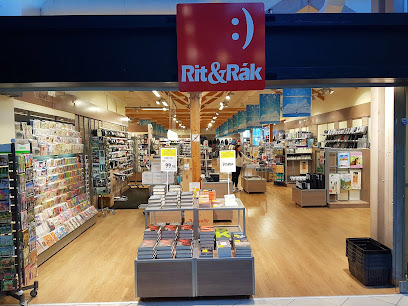
Tógvhúsið
Discover Tógvhúsið in Tórshavn, a vibrant yarn store offering exquisite yarns and crafting inspiration in the heart of the Faroe Islands.
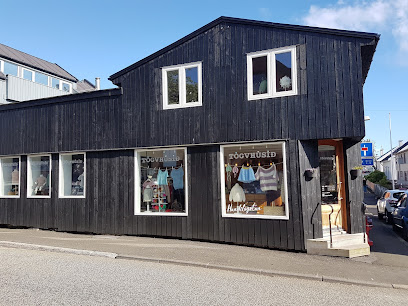
Glimmur
Discover unique gifts and authentic Faroese crafts at Glimmur, the charming gift shop in Tórshavn that reflects the islands' rich culture.
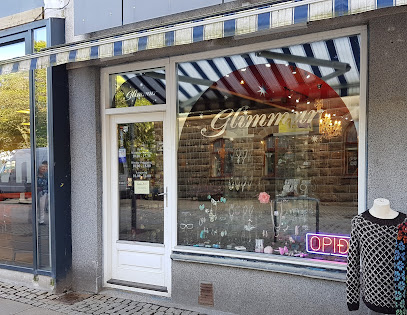
Blákrossbúðin
Discover unique Faroese fashion at Blákrossbúðin, a charming clothing store in Tórshavn, blending tradition with modern style.

Essential bars & hidden hideouts
Irish Pub Torshavn
Discover the authentic Irish pub experience in Tórshavn, Faroe Islands, with hearty meals, a vibrant drink selection, and live music.
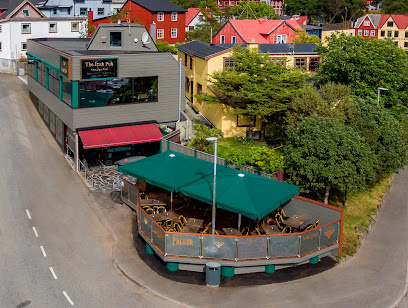
Sirkus Bar
Experience the vibrant nightlife and local culture at Sirkus Bar, Tórshavn's must-visit spot for drinks and entertainment.
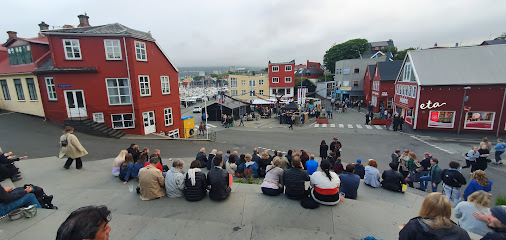
Mikkeller Tórshavn
Experience the vibrant atmosphere and unique craft beers at Mikkeller Tórshavn, a must-visit bar in the heart of the Faroe Islands.
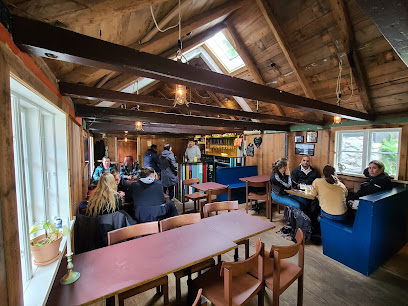
OY Brewing
Experience the best of Faroese craft beer and cuisine at OY Brewing, a vibrant brewpub in Tórshavn.
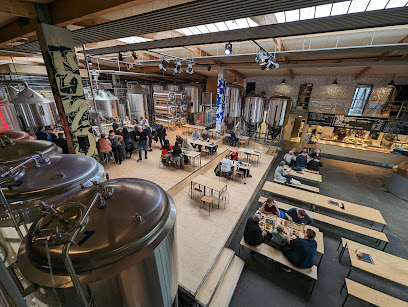
Roykstovan
Experience the vibrant atmosphere of Roykstovan, a local bar in Klaksvík offering a taste of Faroese culture and community.
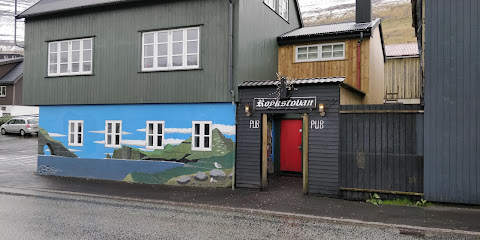
Glitnir
Discover the lively Glitnir bar in Tórshavn, where delicious drinks meet stunning views in the heart of the Faroe Islands.
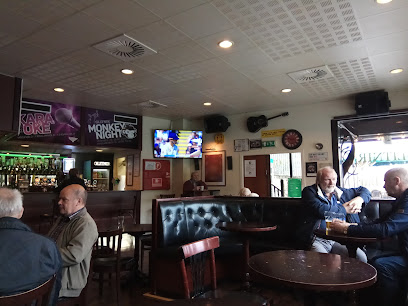
Blábar
Discover the vibrant nightlife at Blábar, Tórshavn's lively bar with great drinks, live music, and a friendly atmosphere.
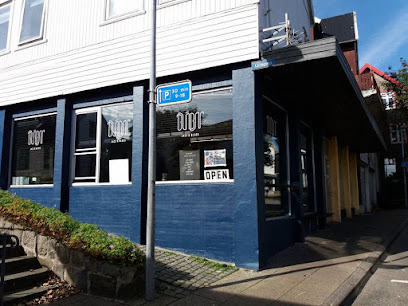
Tórshøll
Experience the vibrant atmosphere and exceptional drinks at Tórshøll, Tórshavn's premier bar destination in the beautiful Faroe Islands.
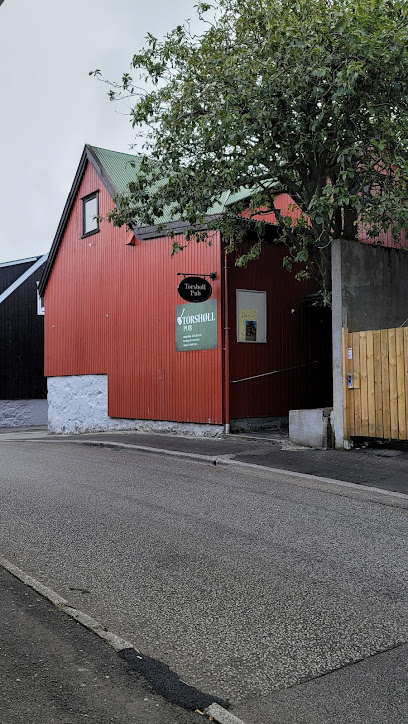
Maverick
Discover Maverick in Klaksvík: A relaxed bar celebrating local brews and a vibrant atmosphere. Perfect for unwinding after exploring the Faroe Islands!
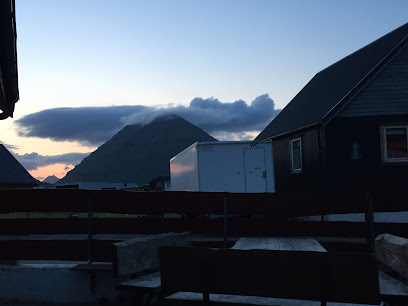
Landskrona Sports Bar
Landskrona Sports Bar in Tórshavn offers an exhilarating mix of sports, food, and drinks, perfect for an unforgettable night out in the Faroe Islands.
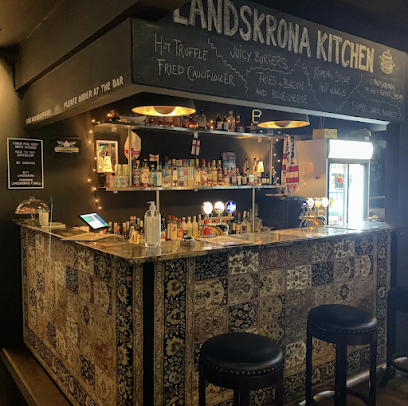
Ástaklokkan
Discover Ástaklokkan in Tórshavn: A cozy café offering delightful breakfasts, delectable lunches, and an excellent wine selection in a charming atmosphere.
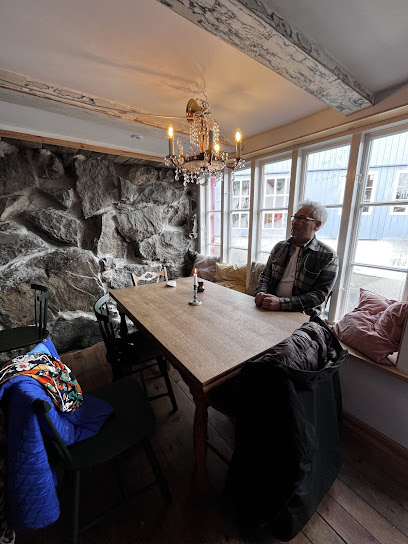
Bjórkovin, the Beer Hub
Discover Bjórkovin, Tórshavn's vibrant beer hub offering a rich selection of local and international brews in a cozy setting.
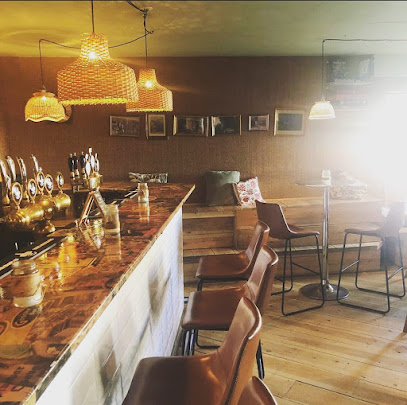
Tvøroyrar Klubbi
Discover the vibrant nightlife of Tvøroyri at Tvøroyrar Klubbi, where locals and travelers unite over drinks and good times.

Mass & Mia
Experience the local charm of Tórshavn at Mass & Mia, a vibrant bar serving delicious Faroese beverages in a warm and welcoming atmosphere.

Local Phrases about Skúvoy Island
-
- HelloHalló
[HAH-loh] - GoodbyeFarvæl
[FAHR-vyel] - YesJa
[YAH] - NoNei
[NAY] - Please/You're welcomeVænligst
[VAYN-leest] - Thank youTakk fyri
[TAHK FEER-ee] - Excuse me/SorryFyrirgef mær
[FEER-ir-gehff mye-ar] - How are you?Hvussu hevur tú tað?
[KHVOOS-soo HEH-vur too tah] - Fine. And you?Gott. Og tú?
[GOHT oh too] - Do you speak English?Talar tú enskt?
[TAH-lar too entskt] - I don't understandEg skilji ikki
[eg SKIL-yee eek-kee]
- HelloHalló
-
- I'd like to see the menu, pleaseEg vil síggja menukortið, vænligst
[eg vil SEE-ya mey-NOO-kohr-tee, VAYN-leest] - I don't eat meatEg eti ikki kjøt
[eg EHT-ee eek-kee chyut] - Cheers!Skál!
[skowl] - I would like to pay, pleaseEg vil gjalda, vænligst
[eg vil GYAL-duh, VAYN-leest]
- I'd like to see the menu, pleaseEg vil síggja menukortið, vænligst
-
- Help!Hjálp!
[HYOWLP] - Go away!Far í burtur!
[FAHR ee BOOR-tur] - Call the Police!Ring til Politið!
[ring til poh-lee-TITH] - Call a doctor!Ring til ein læknari!
[ring til ayn LAYK-nah-ree] - I'm lostEg er tapaður
[eg air TAH-pow-thoor] - I'm illEg er sjúkur
[eg air SHOO-kur]
- Help!Hjálp!
-
- I'd like to buy...Eg vil keypa...
[eg vil KEH-pah] - I'm just lookingEg er bert at síggja
[eg air bairt at SEE-ya] - How much is it?Hvat kostar tað?
[kvaht KOH-stahr tah] - That's too expensiveTað er ov dyrt
[tah air ohv deert] - Can you lower the price?Kann tú lætta prísin?
[khan too LET-tah PREE-sin]
- I'd like to buy...Eg vil keypa...
-
- What time is it?Hvussu nógv er klokkan?
[KHVOOS-soo NOHG-v air kloh-KAN] - It's one o'clockTað er eitt
[tah air eyt] - Half past (10)Hálv tíggju
[HOWL-v TEE-yoo] - MorningMorgun
[MOHR-gun] - AfternoonHádegi
[HOW-deh-yee] - EveningKvøld
[KVEUHL] - YesterdayÍ gjár
[ee DYAHR] - TodayÍ dag
[ee dahg] - TomorrowÍ morgin
[ee MOHR-geen] - 1Eitt
[eyt] - 2Tvær
[tvaer] - 3Tríggjar
[TREE-dyahr] - 4Fýra
[FEW-rah] - 5Fimm
[feem] - 6Seks
[seks] - 7Sjey
[shay] - 8Átta
[OWT-tah] - 9Ni
[nee] - 10Tíggju
[TEE-yoo]
- What time is it?Hvussu nógv er klokkan?
-
- Where's a/the...?Hvar er ein/hetta...?
[kvar air ayn/het-tah] - What's the address?Hvat er adressan?
[kvaht air ah-dress-ahn] - Can you show me (on the map)?Kann tú vísa mær (á kortinum)?
[khan too VEE-sah mye-ar (ow KOR-tin-oom)] - When's the next (bus)?Nær kemur næsta (buss)?
[nair KEH-moor NIGH-stah (boos)] - A ticket (to ....)Eitt miða (til ....)
[eyt MEE-tha (til)]
- Where's a/the...?Hvar er ein/hetta...?
History of Skúvoy Island
-
Sigmundur Brestisson, a key figure in the Christianization of the Faroe Islands, has deep ties to Skúvoy. In the year 999, Sigmundur, who had been exiled to Norway, returned to the Faroe Islands with a mission to convert the inhabitants to Christianity. His base on Skúvoy made the island a central point in this significant cultural shift. Although he faced resistance, Sigmundur's efforts laid the foundation for the Christian faith in the region. His legacy is commemorated with a memorial on Skúvoy, marking his influence on Faroese history.
-
In the mid-14th century, the Black Death reached the remote Faroe Islands, and Skúvoy was not spared. The plague decimated the island’s population, leaving a lasting impact on its demography and social structure. The churchyard at Skúvoy bears silent witness to this tragic period, as it became the final resting place for many of the island’s inhabitants. The deadly outbreak of the plague drastically reduced the population, altering the course of the island's history.
-
The Battle of Mannafallsdalur, which took place in the 15th century, is a notable historical event on Skúvoy. It was a conflict between rival chieftains vying for power in the Faroe Islands. The battle, fought in the valley of Mannafallsdalur on Skúvoy, ended in a decisive victory for one of the factions, leading to a shift in local power dynamics. The site of the battle remains a point of historical interest and is often visited by those keen to understand the island’s turbulent past.
-
Skúvoy is renowned for its dramatic bird cliffs, which have been a vital part of the island's culture and economy for centuries. The cliffs are home to thousands of seabirds, including puffins, guillemots, and kittiwakes. Historically, the islanders relied on bird hunting and egg collecting as essential sources of food and trade. The tradition of fowling has been passed down through generations, and while it is less critical for survival today, it remains an important cultural practice and a draw for ornithologists and nature enthusiasts.
-
The Skúvoy Church, rebuilt in 1937, stands on the site of an earlier church that dates back several centuries. This church has been a cornerstone of the island’s spiritual life, serving as a gathering place for the local community. The architecture of the church reflects traditional Faroese designs, with its wooden construction and turf roof blending seamlessly with the natural landscape. The churchyard is also a place of historical significance, containing gravestones that tell stories of the islanders' lives and the hardships they endured.
Skúvoy Island Essentials
-
Skúvoy Island is accessible by ferry from the Faroe Islands' capital, Tórshavn. The ferry service is operated by Strandfaraskip Landsins, and it is advisable to check the schedule in advance as the service can be infrequent. The journey takes approximately 2 hours. Alternatively, you can take a helicopter operated by Atlantic Airways, which offers a faster but more expensive option.
-
Skúvoy Island is small, and most of its attractions are within walking distance. There are no public transport services on the island, so walking is the best way to get around. For those who prefer not to walk, bicycles can be rented. There are no car rental services on the island, and bringing a car via ferry is not recommended due to limited road infrastructure.
-
The official currency in the Faroe Islands is the Faroese króna (DKK), which is equivalent to the Danish krone. Credit and debit cards are widely accepted, but it is advisable to carry some cash for small purchases or in case of technical issues with card readers. There is no ATM on Skúvoy Island, so ensure you withdraw sufficient cash before arriving.
-
Skúvoy Island is generally very safe for tourists. Crime rates are extremely low, and there are no specific areas where tourists are targeted. However, standard safety precautions should still be followed: keep an eye on your belongings, especially in crowded areas. The island's natural environment can be harsh, so always check weather conditions before heading out and inform someone of your plans if you are hiking.
-
In case of emergency, dial 112 for immediate assistance. The island has limited medical facilities, so for serious medical issues, evacuation to a larger island or Tórshavn may be necessary. It is highly recommended to have travel insurance that covers medical emergencies and evacuation. For minor health concerns, there are basic first aid supplies available at local shops.
-
Fashion: Do wear comfortable and weather-appropriate clothing, as the weather can change rapidly. Layers are recommended. Religion: Do respect local customs and traditions; the island has a strong Christian Lutheran heritage. Public Transport: Public transport is not available; plan your trips accordingly. Greetings: Do greet locals with a friendly 'Hallo' or 'Góðan dagin'. Eating & Drinking: Do try local Faroese dishes such as skerpikjøt (dried mutton). Don't waste food, as it is considered disrespectful.
-
To experience Skúvoy Island like a local, participate in community events and festivals if they align with your visit. Engage with the locals; they are usually very friendly and willing to share stories about the island's history and culture. Don't miss the opportunity to visit the historic Skúvoy Church and the bird cliffs, which offer stunning views and are a haven for birdwatching enthusiasts.
Trending Landmarks in Skúvoy Island
-
Kirkjubømúrurin
-
Múlafossur Waterfall
-
Gjógv Natural Harbour
-
Fossá
-
The Nordic House
-
Skansin
-
The Seal Woman (Kópakonan)
-
Trælanípa
-
The National Gallery of The Faroe Islands
-
Tjóðsavnið (Faroe Islands National Museum)
-
Kallur Lighthouse
-
Hilton Garden Inn Faroe Islands
-
Slave Cliff (Lake Above the Ocean)
-
Bøsdalafossur Waterfall
-
Giljanes Hostel & Campsite
Nearby Cities to Skúvoy Island
-
Things To Do in Nólsoy
-
Things To Do in Argir
-
Things To Do in Tórshavn
-
Things To Do in Vágur
-
Things To Do in Sandavágur
-
Things To Do in Miðvágur
-
Things To Do in Runavík
-
Things To Do in Strendur
-
Things To Do in Kvívík
-
Things To Do in Sorvagur
-
Things To Do in Hvalvík
-
Things To Do in Vestmanna
-
Things To Do in Gøta
-
Things To Do in Klaksvik
-
Things To Do in Inverness







